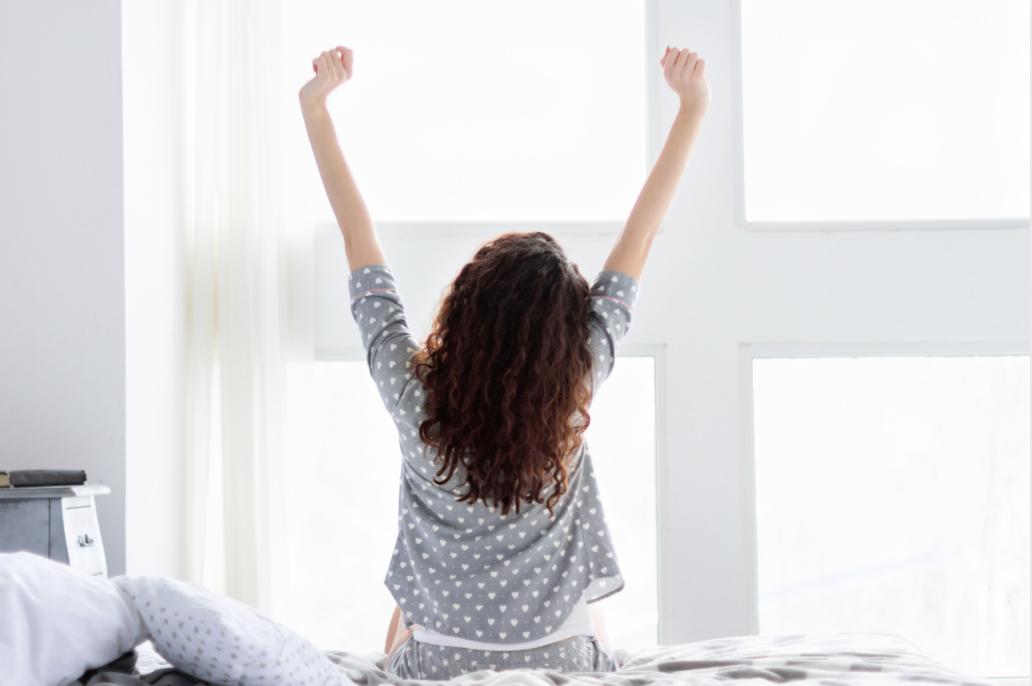By Kaitlyn Hughes and Hal Greenblatt
We’ve talked a bit about the importance of having structure and routine for yourself and your family, but it can be easier said than done! Perhaps you believe the mental health benefits of routine, but aren’t sure where to get started. We’re sharing a look into our personal schedules during the coronavirus pandemic and talking a bit about the different ways you can make your own routine that works for your unique needs.
Having a routine has been shown to decrease and support symptoms from many mental illnesses (bipolar, depression, anxiety, and addiction, to name a few), increase energy and productivity, and benefit your overall mood. When we organize ourselves and create structure to know what to expect, it’s easier to actively work towards our goals or have the energy to counteract behaviors that are bringing us down. For children, routines help moderate oppositional symptoms and impulsiveness – and this makes sense, because structure allows children to feel safe and supported since they understand what to expect and have security in how their world works.
Fortunately, or unfortunately, there’s no one-right-routine. You have to create a system that works for you! When schedules are completely off kilter and we’re all managing unprecedented priorities and competing demands, your routine might look very different from what it did six months ago. That’s okay. The goal is to identify what works for you and be consistent in implementing it. To help, we’re sharing our routines today!
Let’s start with a look at Katie’s routine: “It’s safe to say that implementing routine and structure is much easier said than done! It takes practice, accountability and consistency. I am the first to admit that working from home has been an adjustment for me BUT I have found that sticking to a routine has helped me greatly feel more motivated.
An average day might look like:

“Like I said before none of my days are the same but I try to remain as consistent as possible. To me it is important to get in some exercise in the morning and start the day with some feel good endorphins. It is equally important for me to end the night with reading and gratitude journaling. Everyone is different and what works for me might not work for everyone else. The important part is finding what works for you and sticking with it. Remember consistency is key!”
Hal’s schedule, on the other hand, while it contains a lot of similar things (work, meals, exercising), the specific times and lengths look different. Hal says, “Let me be honest, routine was never my kind of thing growing up. Let me be even more honest, routine wasn’t even my thing as a young adult. I knew that it was important to follow a routine, but I always figured that I’d manage and eventually make it. Well, let me tell you, I was dead wrong.
The importance of routine, regardless of how lenient or strict it is, is imperative to success, especially in today’s world of COVID-19. Whether you are a high school student, college student, young professional or an old head like me, set yourself up with a routine in an effort to achieve more balance and success in life.” Here’s a look at a day in the life of Hal (Monday through Friday):

As you can see, there’s really no “right” way to create a routine. It has to work for you and it has to be attainable! If you know you’re not a night owl, plan for that! If you know you like to get some movement in before you start your day, make that a part of what you do. Every member of your family’s schedule may look slightly different and that’s okay. Having a routine, and sticking to it, is what counts.
About the Authors: Hal Greenblatt has worked for CGRC for 9+ years in the Truancy and Delinquency Prevention Partnership. Hal studied undergrad at Temple University, majoring in Early Childhood and Elementary Education, and received his masters in Human Services and Counseling from Villanova University. When not working with clients, Hal enjoys working out, playing/watching/writing about sports, spending time with family and friends and taking his dog, Sir Brodie Theodore, Esq. for long walks around Philadelphia.
Kaitlyn Hughes is a masters level Truancy Clinician at Child Guidance. Originally from Lehigh Valley, Pennsylvania, she attended Wilkes University for my undergraduate degree and Kutztown University for her masters. She currently resides in Philadelphia, PA. In her free time she enjoys traveling and spending time with family and friends. She has a great interest in self care and staying active to promote a healthy balanced lifestyle and loves teaching her clients new techniques and seeing them achieve a more positive mindset.

